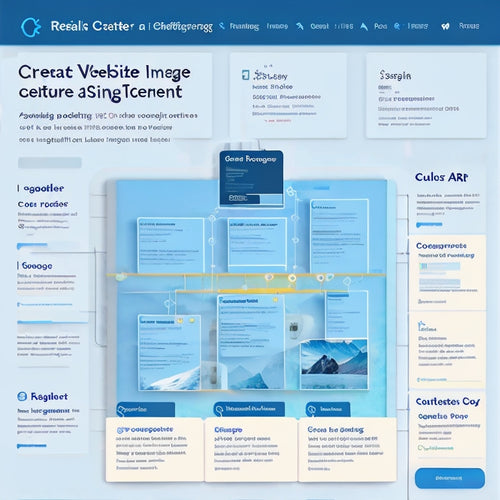
Expert Tips for 120k Mile Maintenance
Share
At the 120,000-mile mark, a thorough maintenance regimen is essential to extend the lifespan of your vehicle and prevent costly repairs, requiring a proactive approach that addresses essential maintenance items, fluid changes, and cost-saving strategies. Replace spark plugs, check transfer case and brake fluid, and review vehicle systems for reliability and performance. Regular oil changes, air filter replacements, and coolant maintenance are also crucial. Compare prices for OEM parts, get quotes from different mechanics, and consider DIY savings to minimize costs. By following these expert tips, you'll be well on your way to maintaining your vehicle's best performance and longevity, and uncovering more opportunities for cost-effective upkeep.
Key Takeaways
• Replace spark plugs and coolant to maintain engine efficiency and prevent water pump failure at 120k miles.
• Regularly check and replace transfer case and brake fluid to ensure overall vehicle health and prevent costly repairs.
• Adhere to the recommended maintenance schedule to extend vehicle lifespan and prevent premature wear on critical components.
• Consider cost-saving strategies like comparing prices, getting quotes, and DIY maintenance to minimize expenses without compromising safety.
• Regular oil changes, air filter replacements, and fluid checks are essential to maintaining engine longevity and performance.
Maintenance Recommendations at 120k
At the 120,000-mile mark, an important maintenance threshold is reached, requiring a thorough review of the vehicle's systems to guarantee prolonged reliability and performance.
It is crucial to adhere to the recommended maintenance schedule to prevent premature wear and tear.
Spark plug replacement is essential, with the typical interval being around 100,000 miles, but it's recommended to replace them if not done so already.
Coolant importance cannot be overstated, as it plays a significant role in maintaining the water pump's integrity. Failure to change the coolant can lead to costly repairs.
Additionally, checking the transfer case and brake fluid is important to ensure the vehicle's overall health.
Cost-Saving Maintenance Strategies
Regularly integrating cost-saving strategies into maintenance routines can significantly reduce expenses without compromising the vehicle's performance or longevity. By adopting a proactive approach, car owners can minimize costs without sacrificing safety or reliability.
Here are some effective cost-saving maintenance strategies to keep in mind:
- Compare prices for OEM parts from various sources to secure the best deal
- Get quotes from different mechanics for spark plug replacement to discover the most competitive rate
- Ponder DIY savings by performing regular maintenance items, such as oil changes and air filter replacements
- Utilize price comparison tools to find the best deals on replacement parts and services
Essential Maintenance Items to Address
Properly maintaining a vehicle's core systems is important to extending its lifespan and preventing costly repairs, and this begins with addressing key maintenance items at the 120,000-mile mark.
Regular oil changes are essential to maintain the engine's longevity, and replacing air filters and cabin air filters is crucial for best performance and air quality.
Spark plug replacement is also vital to maintain engine efficiency and prevent misfires.
Additionally, checking and replacing coolant and brake fluid are necessary to prevent overheating and brake failure.
Fluid Change Clarifications and Reminders
Five critical fluid changes warrant attention at the 120,000-mile mark: coolant, transmission, brake, power steering, and transfer case fluid replacements, each with its unique requirements and benefits.
Regular fluid changes safeguard the longevity and performance of your vehicle's components.
Be aware that power steering maintenance may not necessitate fluid changes in newer models, so consult your owner's service manual for specific guidance.
Adhere to the recommended fluid change frequency to avoid premature wear and tear.
Neglecting fluid modifications can lead to costly repairs and compromise safety on the road.
Prioritize fluid replacements to maintain your vehicle's overall health and performance.
Community Resources and Discussions
Lexus owners can tap into a wealth of knowledge and experience by participating in online forums and community discussions. These platforms provide a space where owners can access valuable resources, share insights, and connect with like-minded individuals.
These community resources offer a platform for owners to engage in discussion threads related to specific models, maintenance items, and repair experiences. By leveraging these online forums, owners can gain valuable insights from others who have faced similar challenges, enabling them to make informed decisions about their vehicle's maintenance and upkeep.
Additionally, community resources provide access to a collective knowledge base, allowing owners to troubleshoot issues, share tips, and stay updated on the latest maintenance recommendations. Ultimately, these resources help ensure the safety and longevity of their vehicles.
Frequently Asked Questions
How Often Should I Check My Vehicle's Battery Condition?
To guarantee reliable performance, inspect your vehicle's battery condition every 6 months, checking for signs of corrosion, wear, and loose connections. Perform electrical inspections annually, and consider replacement every 5-7 years or as recommended by the manufacturer.
What Is the Recommended Tire Pressure for My Lexus Model?
For best safety and performance, consult your Lexus owner's manual for recommended tire pressure specifications, and guarantee proper tire rotation and alignment to prevent uneven wear, while also monitoring tire pressure regularly to avoid underinflation.
Can I Use Synthetic Oil for My Vehicle's Oil Changes?
When considering synthetic oil for your vehicle's oil changes, weigh the benefits of enhanced performance and fuel efficiency against potential drawbacks, such as higher costs and compatibility concerns, to guarantee peak performance and safety.
How Do I Reset My Vehicle's Maintenance Reminder System?
"An ounce of prevention is worth a pound of cure." To reset your vehicle's maintenance reminder system, consult your owner's manual or contact a dealership for guidance on updating your vehicle's software, ensuring necessary updates are applied to prevent system malfunctions.
Are There Any Specific Maintenance Tasks for Extreme Weather Conditions?
For extreme weather conditions, prepare your vehicle for winter driving by checking battery health, tire pressure, and ensuring proper coolant levels. In summer heat, maintain proper coolant and oil levels, and consider upgrading to high-performance fluids for best performance and safety.
Related Posts
-

Solutions for Online Sellers' Technical Pain Points
As an online seller, you know that technical pain points can make or break your business. From seamless order managem...
-

Why Is an HTML Sitemap Important for SEO
This article examines the importance of an HTML sitemap for SEO. It explores the benefits of using an HTML sitemap, ...
-

How Do I Add a Pop-Up Sale on Shopify
This article discusses the process of adding a pop-up sale on the Shopify platform. It aims to provide an informativ...


